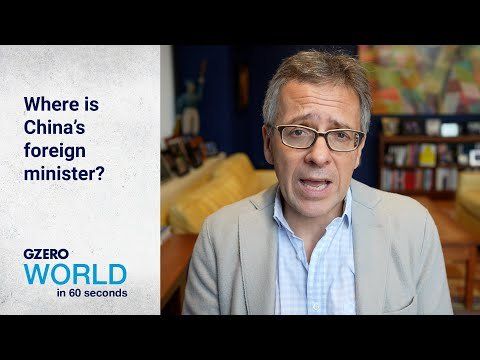What are the consequences from Russia's exit from the Black Sea grain deal? Where is Chinese foreign minister Qin Gang? "Oppenheimer" is out. Will you be watching? Ian Bremmer shares his insights on global politics this week on World In :60.
What are the consequences from Russia's exit from the Black Sea grain deal?
Well, a lot of antagonism from the Global South because prices are now going up. That's why the Russians hadn't wanted to leave. Look, I mean, there is an ammonia pipeline that was sabotaged that the Russians wanted to use traversing Ukraine, that hasn't gotten fixed. They also wanna be able to get back into SWIFT for the agricultural banks, and neither of those things happen. So they have pulled out of the deal. They are also now attacking Odessa, stepped up way, including grain capacity and blowing up a whole bunch of food. And this is, these are all war crimes. And now you've got a whole bunch of sub-Saharan countries in particular that are gonna be angry with Russia as a consequence, one of the places they've done comparatively well since the beginning of the war.
Where is Chinese foreign minister Qin Gang?
I have no idea, and especially because, I mean, I know him pretty well. When he was ambassador to Washington, I used to see him all the time and he is very close to the Chinese president. So the fact that it's been about four weeks now and he has not been heard from, initially, the Chinese government said it was a medical issue. They stopped saying that after the first couple of times. And the only thing we've heard is some scandals about, you know, maybe a relationship with some journalist. I have no idea, but clearly given who he is and his backing, it's going to be a fairly big deal. And some long knives from opponents have to be seriously out for him to be away as long as he has. Hopefully we'll hear about that soon because you need an effective foreign minister.
"Oppenheimer" is out. Will you be watching?
Well, I'm not watching "Barbie." I wasn't sure if I was going to, but then I saw my buddy Fred Kaplan, who wrote "Wizards of Armageddon" and is like probably one of the preeminent historians on the atomic bomb, he saw an early version of the film, all three hours of it, and said it was not only historically accurate, but also fantastic. And that makes me want to go see it, because let's face it, I mean, this is the guy, the father of the Manhattan Project, made the atomic bomb happen. He is a very, very controversial figure, and it's an issue we need to be talking a lot more about because we are facing much greater dangers from nuclear proliferation and from nuclear war today than at any point since 1962. So I'm glad it's coming out and hopefully it raises some awareness.
- Putin’s moment of truth has come ›
- The geopolitics of "Barbie" ›
- Hungry countries vs. Russia ›
- Russia kills Ukraine grain deal ›
- Hard Numbers: Britain seeks bricklayers, Pentagon loses secrets to a typo, Cameroon separatists attack, where has Qin Gang gone? ›
- Can China broker another Mideast rapprochement? ›
- China replaces foreign minister Qin Gang - GZERO Media ›
- Canada-India relations strained by murder allegation - GZERO Media ›
More For You
In this Quick Take, Ian Bremmer weighs in on the politicization of the Olympics after comments by Team USA freestyle skier Hunter Hess sparked backlash about patriotism and national representation.
Most Popular
100 million: The number of people expected to watch the Super Bowl halftime performance with Bad Bunny, the Puerto Rican superstar and newly minted Album of the Year winner at the Grammys.
Brazilian skiers, American ICE agents, Israeli bobsledders – this is just a smattering of the fascinating characters that will be present at this year’s Winter Olympics. Yet the focus will be a different country, one that isn’t formally competing: Russia.
What We’re Watching: Big week for elections, US and China make trade deals, Suicide bombing in Pakistan
Japanese Prime Minister Sanae Takaichi, president of the Liberal Democratic Party (LDP), appeals for a candidate during a street speech of the House of Representatives Election Campaign in Shintomi Town, Miyazaki Prefecture on February 6, 2026. The Lower House election will feature voting and counting on February 8th.
Japanese voters head to the polls on Sunday in a snap election for the national legislature’s lower house, called just three months into Prime Minister Sanae Takaichi’s tenure.
